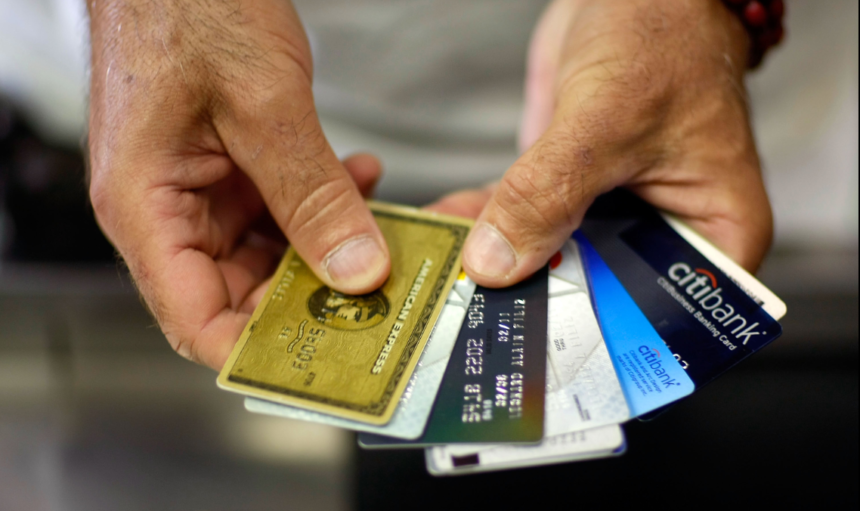In the UK, credit card fraud is a serious concern affecting individuals and businesses alike. This guide delves into strategies for preventing such fraud and offers solutions to mitigate its risks. Learn about security measures, legal protections, and more to safeguard your financial assets effectively.
What is Credit Card Fraud?
Credit card fraud, in its simplest terms, is a form of theft or deception involving a credit card. Its ultimate goal is to obtain goods without payment or to illegally draw funds from another individual’s credit account.
The numerous variants of credit card fraud can essentially be segmented into four primary types ⇒

- Misuse of lost or stolen cards, where the card is used without the consent of the real owner.
- ‘Skimming‘ of credit cards, a process in which the card is swiped through a special device to create a replica.
- Theft of card details such as the card number, holder’s name, birth date, and address, often from online databases or via email scams. These details are then sold and misused online or over the phone. This form of fraud is frequently referred to as ‘card-not-present’ fraud.
- Fraudulent applications for new credit cards made in another person’s name without their knowledge or approval.
In the unfortunate event that you fall prey to credit card fraud, it’s typically the case that you won’t be held responsible for any unauthorised transactions.
This assurance comes from the safety net provided by the Consumer Credit Act 1974, allowing you to recoup any losses incurred from fraudulent activities. However, there are a couple of scenarios where a full reimbursement may not apply. If your card was misplaced or taken, you would be responsible for the initial £50 charged. Swiftly reporting your missing card could lead to this charge being dropped.
Secondly, if your actions could be considered careless – not properly safeguarding your card details. Instances where your bank may consider you negligent and refuse reimbursement could be: if over 13 months have passed since the fraudulent activity, if the card provider can demonstrate you approved the transaction, if you engaged in fraudulent conduct—like denying a transaction you were aware of was yours, or if you failed to secure your card details, PIN, or password—like noting your PIN on a piece of paper kept in your wallet with your card.

How Can I Detect the Credit Card Fraud?
Keeping a regular check on your credit card activities might seem a bit bothersome, but it’s a small step that has a significant bearing on your financial safety.
It could be as simple as sparing a few minutes every couple of days. This routine might feel like a mild inconvenience, yet the potential downside of ignoring this step could be stark. Unnoticed, someone could be misusing your credit card information, leading to an unexpected and substantial dent in your wallet.

1. Regularly scrutinise your banking statements and credit report.
- Don’t hesitate to contact your card issuer for clarification.
- Contact Equifax, Experian, or TransUnion for a detailed report and to flag any discrepancies.
2. Unexpected mail should be promptly addressed with the sender, as should any anticipated mail that doesn’t arrive.
- Because it could be intercepted and misappropriated.
3. Setting up bank alerts for card transactions provides real-time updates, such as text messages when your card is utilized.
4. If your credit card is declined, engage with your card provider to understand the situation.
There may be unsuspected high-value payments.
- Reaching your credit card limit unexpectedly could also be a sign of unauthorized usage, requiring immediate attention.
What Should I Do to Prevent Credit Card Fraud?
Taking steps to protect yourself from credit card fraud is crucial in our increasingly digital world. Here’s how you can safeguard your financial health.

- First and foremost, make sure to keep your card within view during transactions; this prevents any unauthorized duplication or alterations.
- It’s also wise to guard your personal data, including PINs and passwords, from prying eyes.
- When it’s time to retire an old credit card, don’t just toss it in the trash – slice it up, ensuring you cut through both the chip and the magnetic strip.
- Make your passwords robust and unique, and get into the habit of refreshing them regularly.
- Avoid using public Wi-Fi networks for financial transactions; the data connections in your home or on your phone are typically much more secure.
- Consider what you’re posting on social media, too – revealing too much personal information can leave you vulnerable to identity theft.
- Prior to making payments, ensure that the company you’re dealing with is genuinely the real deal; before engaging with financial services, confirm their legitimacy by checking the FCA register, and for non-financial service companies, consult Companies House or look for online reviews.
What Should I Do When I Get Credit Card Fraud?
- It’s paramount to promptly get in touch with your card issuer if you suspect fraudulent charges on your credit card. This step crucially aids in your compensation for the unauthorized transactions.
- Reporting the incident to Action Fraud via their digital fraud reporting platform or by dialing 0300 123 2040 is a valuable move.
- Additionally, consider updating your passwords and PINs. There might be a temptation to believe that the security breach is limited to one card, however, the method used to access your card’s information remains unknown. Consequently, other services could be potentially compromised.
- You need to switch on your detective mode. Look out for any other red flags suggestive of fraudulent behaviour. This involves meticulous examination of your bank and credit card statements from the past few months, as well as obtaining a copy of your credit file. These actions will facilitate the identification of any stealthy attempts to secure credit cards or loans using your personal information, without your knowledge.

Conclusion
To wrap up, good credit card practices in the UK come down to responsible usage, staying informed, and seeking help when needed. Remember, prevention is always better than cure. But if you do find yourself in a tight spot, numerous resources and organisations can provide advice and assistance.
By taking control of our credit cards, we can navigate the financial seas with confidence and poise, ensuring a secured financial future. Let us embrace the journey of financial literacy and forge our path towards financial freedom.
FAQ
Students are less financially resilient to risk, so it’s important to choose an authoritative credit card provider. Here are some of the popular credit card companies in the UK.
- American Express
- Zopa
- Tesco Bank
- Santander
- NatWest
- Metro Bank
- Bank of Scotland
- First Direct
- Nationwide
Yes.
International students in the UK do have access to credit cards, but it can sometimes be a bit of a journey to get there. Banks are often looking for evidence of creditworthiness, a bit like a financial CV. If you’ve been responsible with a credit card in your home country, that can be a good starting point. Alternatively, sticking with a bank where you’re already a customer could also make things a little smoother, as they will already be familiar with your banking history. If neither of these options are available, there’s no need to be disheartened. Some banks offer credit cards designed specifically for university students, with more forgiving requirements. They might not have all the bells and whistles of other cards, but they’re a valuable first step on the ladder of building credit history.
Yes.
Since the year 2014, Aldi, one of the UK’s favourite supermarkets, has opened its doors to payments from all the big names in the credit card world. Whether you’re a Visa enthusiast, a MasterCard devotee, a Maestro user, a Delta Electron holder, or an American Express fan, rest assured your card is welcome at Aldi’s checkout counters all across the UK.







